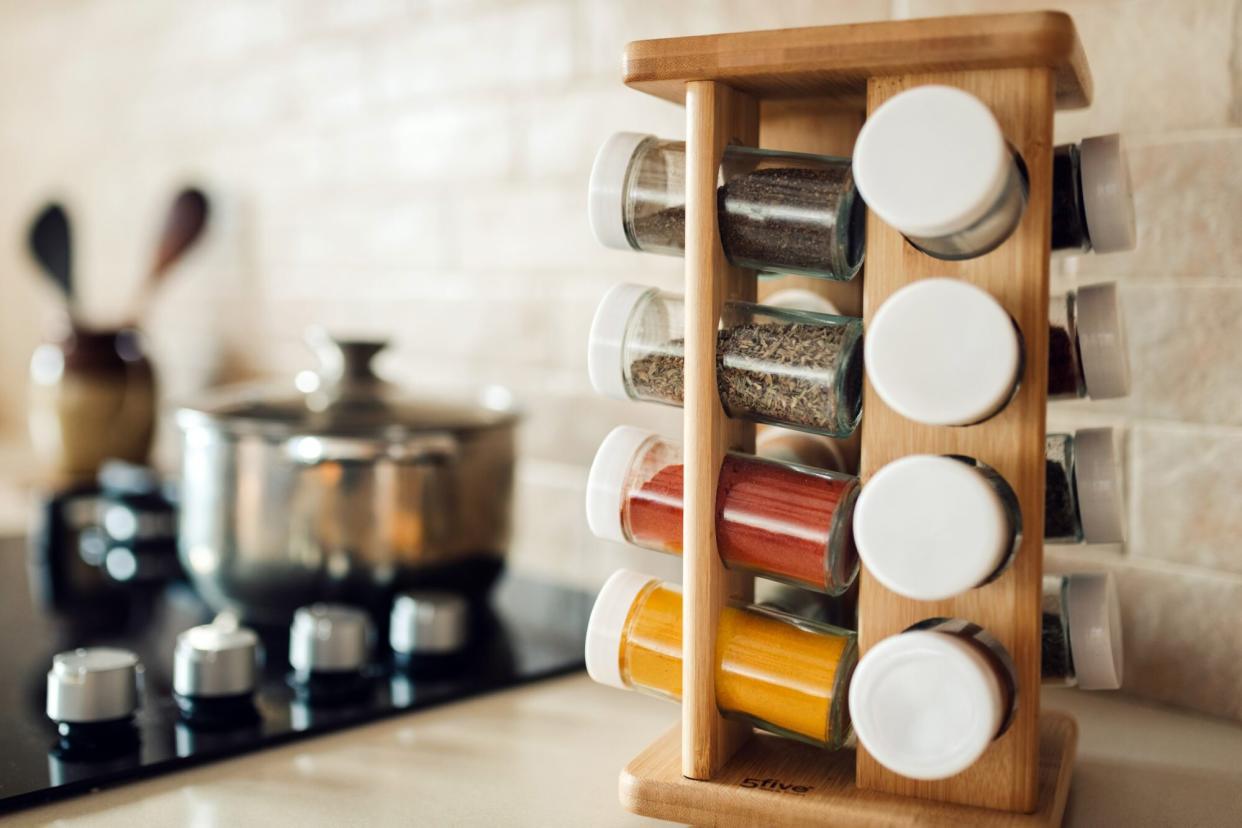Time to Clean Your Spice Jars—They're the Dirtiest Part of Your Kitchen, a New Study Revealed

GETTY IMAGES
When it comes to deep cleaning your kitchen, you likely spend extra time scrubbing your sink, refrigerator, countertops, and other commonly used areas. But a new study published in the Journal of Food Protection found that the highest amount of bacteria lurks in a surprising place: your spice jars.
The study, which aimed to uncover the prevalence and degree of cross-contamination of a variety of kitchen surfaces, found that spice containers have the highest amount of cross-contamination. To obtain their findings, the study authors asked 371 participants to prepare a meal consisting of turkey patties and prepackaged salad. To trace the movement of a pathogen, the researchers infused the meat with a bacteriophage called MS2, which isn't harmful to humans.
Related: How to Clean Your Entire Kitchen Range, From Your Oven and Stovetop to the Vent Hood
Once the meal was finished, researchers swabbed kitchen utensils, cleaning areas, and kitchen surfaces to test for the presence of MS2. They also took samples from new categories that may be likely to have cross-contamination, like spice jars and sink faucet handles.
After analyzing their findings, the researchers discovered the most frequently contaminated objects were spice containers. In total, 48 percent of the samples were contaminated with MS2. Additionally, cutting boards were the second most contaminated, followed by trash can lids. According to the study, faucet handles were the least contaminated object.
"We were surprised, because we had not seen evidence of spice container contamination before," Donald Schaffner, professor in the Department of Food Science at the Rutgers School of Environmental and Biological Science said in a press release. "Most research on the cross-contamination of kitchen surfaces due to handling of raw meat or poultry products has focused on kitchen cutting boards or faucet handles and has neglected surfaces like spice containers, trash bin lids and other kitchen utensils."

